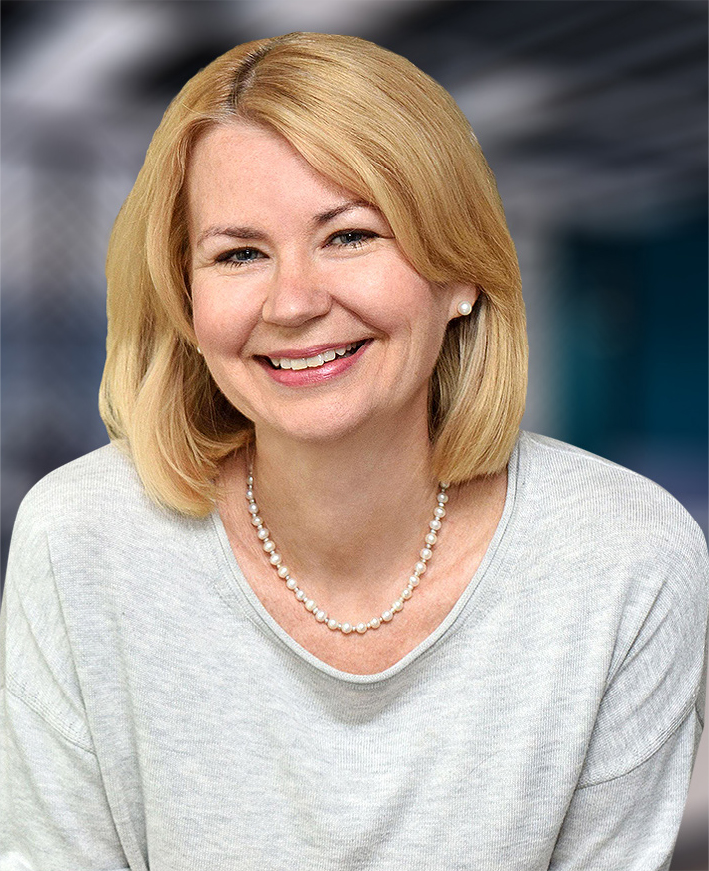Legal Services Market Talk: Work Pace Maintained Amid Cautious Reopening

Erika Papp
The old cliché used to have it that banks and law firms were the most traditional of businesses. Yet FinTech is rapidly expanding in the former, and A.I. and digitalization in the latter. The Budapest Business Journal asked a number of the leading lawyers in Hungary how they view the market as we head out of the pandemic.
For many, the COVID crisis has accelerated the pace of change. Zoltán Hegymegi-Barakonyi, managing partner at Hegymegi-Barakonyi and Partner Baker & McKenzie Attorneys-at-Law, says his team plan to return to a normal operation by the end of the summer.
“I believe that remote work should remain the general rule until sufficiently high immunity rates are achieved,” he says
“We all look forward to regaining our ‘lost freedom,’ but clients as well as lawyers have realized that a significant part of their work can be completed remotely, more efficiently,” he says.
Although some team members periodically worked remotely prior to the first lockdown, he is in no doubt that “the pandemic accelerated our digital transformation.” He cites a recently installed video conferencing technology in the office.
“It was tested with great success when a Hungarian client had to participate in an online arbitration hearing in the U.K. I am sure that we will use such equipment more frequently, instead of attending meetings or hearings in person. Therefore, I also expect much less travel in the future, which should positively impact the environment,” Hegymegi-Barakonyi says.
András Posztl, country managing partner of DLA Piper Hungary, says the pandemic has “triggered a tsunami in law firms’ attitude to technology.Satya Nadella, the CEO of Microsoft, has said that the first three months of the pandemic created as much progress in digital adoption as the previous five years. We believe that more than 90% of legal work can be done remotely,” he adds.
Although such views are common, they are by no means unanimous. “I do not see the link between COVID and digitalization of work,” insists Zoltán Nádasdy, co-head of Noerr & Társai Iroda.
“The latter is a trend, which had started in certain advisory fields much earlier than COVID appeared. This will definitely continue; however, in certain fields, software and machines cannot yet substitute human brain and creativity.”
The latter is an important point, because “Legal advisory is a people business, which requires personal interactions. Video calls could provide a platform for keeping the communications running, but they cannot substitute the trusted atmosphere a personal meeting can create. Also, business networking needs personal meetings, conferences, etc.,” he argues.
Erika Papp, managing partner at CMS Cameron McKenna Nabarro Olswang LLP Hungary, sees both sides of that argument. “During the pandemic, we realized that you can work more and more effectively remotely,” she accepts.

András Posztl
“There is perhaps only one exception that cannot be replaced digitally and virtually: that is that the legal business is always a business of trust, and some work requires face-to-face meetings with clients, and sometimes face-to-face negotiations for large transactions. Nevertheless, law firms still have to invest in remote working technology because it will continue to be part of how we work in the future,” she believes.
Indeed, it will also shape the workspace. Papp says her firm has had several internal discussions about how a digital office should look, in order to “create a space to which all of our colleagues can happily return.”
Posztl, of DLA Piper, agrees with that sentiment. “We think the office will turn from a workplace into a ‘culture space’ where people can bond, socialize, and share, creating a strong corporate culture. Hence, when we are moving back, we shall offer alternative ways of working,” he explains.
András Szecskay, managing partner at Szecskay Attorneys at Law, is yet another straddling the divide between remote and office working. “We make every effort to create a lively environment in the office because we believe it adds a lot to our best output,” he says. “I believe it is important that every expert in the firm feels heard, whether they have a well-founded, safety-based concern or simply that they enjoy the comfort of working from home.”
Kristóf Ferenczi, managing partner of Kinstellar Budapest, like all the others interviewed here, is happy that a return to the office is possible, but says it must be carefully managed.
“The first group of fully immunized colleagues is now in the process of returning with a hybrid arrangement, to be followed by the next group a few weeks later. Setting the right parameters for those working in and returning back to the office is a constant challenge, requiring re-calibration every now and then,” he notes.

Zoltán Hegymegi-Barakonyi
As for what the law firms are working on, Papp says she thinks several sectors (and therefore legal practice areas) will grow this year despite the current pandemic. She lists employment law and employee-related litigation matters, AI, cybersecurity, data protection, GDPR, competition law matters, and specific commercial contracts.
“Contrary to our expectations, our M&A team has been very busy during the pandemic. Banks never stopped lending partly because the National Bank of Hungary created an environment that was favorable for bank lending. In addition, our renewable energy practice has also been very busy lately and our finance team as well,” she says.
Szecskay paints a broadly similar picture, saying bank financing is back on track. “We see a lot of regulatory related inquiries from financial service providers expanding both geographically and in terms of services offered,” he adds.
Ferenczi sees M&A interest in specific sectors, including IT, pharma, energy and industrials. “Financing is clearly on the rise. Other trends, partly induced by the pandemic, also continue, such as clients taking a strong interest in all aspects of employment law, including its overlap with privacy matters.”
Nádasdy says real estate and manufacturing are back on track. “Banks are optimistic and ready to lend; lending conditions were tight during the pandemic but are now more flexible again, almost at levels before pandemic.” He adds that there is strong interest in the restructuring sector and the non-performing loan sector.

Kristóf Ferenczi
As for upcoming trends, Kinstellar’s Ferenczi says the challenges and opportunities arising from the European Green Deal will be key.
“The fundamental shift to a sustainable future, involving the net zero aspirations, build-up of renewables, green financing, focus on ESG, e-mobility, role of hydrogen in the economy etc., will profoundly reshape the businesses of many of our clients,” he says.
Papp, of CMS, agrees, and expects environmental law and sustainable finance will “become increasingly important in the near future.”
What about the law firms themselves; is consolidation on the market a possibility? Noerr’s Nádasdy does not think so, saying the firms “clearly have a positive outlook.”
Papp agrees: “Many have done very well during the pandemic, so we do not see any reason for consolidation or pulling out [...] we believe that law firms will come out from this situation even stronger than before.”
Szecskay makes the point that “Hungary is a relatively small market for law firms; any sort of major consolidation may bring unwanted conflict which puts a question mark over the overall benefits of consolidation.”
Ferenczi, however, takes a different tack. “It continues to be my view that the Budapest legal market calls for further consolidation. The firms with clear strategy for and well-founded long-term commitment to this region will likely act as consolidators,” he argues.
Asked what is happening with the backlog of court cases, Szecskay sees an interesting dichotomy. Technology and experience was one limiting factor, he says.

Zoltán Nádasdy
“More importantly, most judges prefer in-person court hearings, which I tend to agree with, since face-to-face argumentation adds a lot to the decision-making process. It’s just like a live concert: You need to feel the atmosphere!”
The courts are now fully operational and busy, but he doubts online hearings will be continued unless absolutely needed. Arbitration, however, is another matter.
“I regularly act as an arbitrator and have experienced that the advantages of the virtual world are welcomed by the counsels. In international arbitration, the parties have to travel to attend hearings and most people are not confident yet to do so. In this case I could imagine that online hearings are here to stay, and I fully support this.”
When we spoke with the law firms last year, there was a genuine concern there could be a big uptick in businesses facing liquidation. Has that threat materialized, been avoided, or merely kicked into the long grass?
Papp says mass liquidations and restructuring have not happened, yet, because the government has repeatedly extended the loan moratorium and the banks have not stopped lending.
“Additionally, we have to mention that new legislation is being prepared, and some is already out, which will make it even easier for businesses to survive this difficult and challenging period and restructure themselves in the right way,” she says.
Nádasdy agrees, noting that the loan moratorium and state support have helped a lot of businesses stay above water. “Thus, until now, we have not experienced a general liquidation wave spreading around. However, once the moratorium ends, companies with unsustainable business model or structural issues (so-called “zombie firms”) may face a cliff edge,” he warns.

András Szecskay
Our Legal Services Market Talk Panel
Erika Papp, managing partner, CMS Cameron McKenna Nabarro Olswang LLP Hungary
András Posztl, country managing partner of DLA Piper Hungary
Zoltán Hegymegi-Barakonyi, managing partner, Hegymegi-Barakonyi and Partner Baker & McKenzie Attorneys-at-Law
Kristóf Ferenczi, managing partner, Kinstellar Budapest
Zoltán Nádasdy, partner and co-head, Noerr & Társai Iroda
András Szecskay, managing partner, Szecskay Attorneys at Law
This article was first published in the Budapest Business Journal print issue of June 4, 2021.
SUPPORT THE BUDAPEST BUSINESS JOURNAL
Producing journalism that is worthy of the name is a costly business. For 27 years, the publishers, editors and reporters of the Budapest Business Journal have striven to bring you business news that works, information that you can trust, that is factual, accurate and presented without fear or favor.
Newspaper organizations across the globe have struggled to find a business model that allows them to continue to excel, without compromising their ability to perform. Most recently, some have experimented with the idea of involving their most important stakeholders, their readers.
We would like to offer that same opportunity to our readers. We would like to invite you to help us deliver the quality business journalism you require. Hit our Support the BBJ button and you can choose the how much and how often you send us your contributions.









